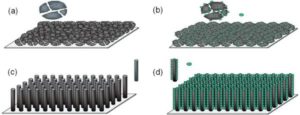Mar
12
2018
 One way to learn about how a system functions is to examine how it fails. Historically much of our knowledge of the most complex system we know, the nervous system, derived from examining patients with neurological deficits and then examining their brain (prior to imaging, this meant at autopsy).
One way to learn about how a system functions is to examine how it fails. Historically much of our knowledge of the most complex system we know, the nervous system, derived from examining patients with neurological deficits and then examining their brain (prior to imaging, this meant at autopsy).
This process is particularly fascinating with the human brain because we don’t yet know all of the things that the brain does. Some brain functions are obvious, like vision or motor control, because they are conscious. But most of what the brain does is subconscious, and we have had to specifically learn that the brain even needs to do certain things, mostly by examining what happens when the brain fails to do those things.
For example, we take for granted that we move as much as we desire to more, no more or less. But this balance between desire to move and the resulting movement is not automatic. There is an entire system within the brain, the extrapyramidal system, that is a series of feedback loops that carefully modulate moment to moment the gain of voluntary movement (the relationship between input – desire to move, and output – movement). Parkinson’s disease results from a disruption in this circuit which causes the gain to be turned down, so people move less and can even freeze. Chorea (as in Huntington’s chorea) involves the gain being turned up, so people with this disease are constantly writhing.
There are many other amazing examples of things most people are not aware that their brains do, or even that they have to do them. There are circuits in the brain necessary for feeling that you occupy your body, that you own and control your various body parts, and that you are separate from the universe. Disrupt these circuits, and your reality changes.
Continue Reading »
Mar
09
2018
 The battle between truth and fiction is asymmetrical. While that seems to be the case, now we have some empirical evidence to back up this conclusion. In a recent study researchers report:
The battle between truth and fiction is asymmetrical. While that seems to be the case, now we have some empirical evidence to back up this conclusion. In a recent study researchers report:
To understand how false news spreads, Vosoughi et al. used a data set of rumor cascades on Twitter from 2006 to 2017. About 126,000 rumors were spread by ∼3 million people. False news reached more people than the truth; the top 1% of false news cascades diffused to between 1000 and 100,000 people, whereas the truth rarely diffused to more than 1000 people. Falsehood also diffused faster than the truth. The degree of novelty and the emotional reactions of recipients may be responsible for the differences observed.
This reflects the inherent asymmetry. Factual information is constrained by reality. You can also look at it as factual information is optimized to be true and accurate. While false information is not constrained by reality and can be optimized to evoke an emotional reaction, to be good storytelling, and for drama.
We see this in many contexts. In medicine, the rise of so-called alternative medicine has been greatly aided by the fact that alternative practitioners can tell patients what they want to hear. They can craft their diagnoses and treatments for optimal marketing, rather than optimal outcomes.
Continue Reading »
Mar
08
2018
 It has been simultaneously exciting and frustrating to follow energy technology news over the last couple of decades. There seems to be endless news stories about a “breakthrough” in technology for batteries, photovoltaics, supercapacitors, hydrogen fuel, and other ways to harvest and store energy. The breakthroughs, however, never seem to manifest.
It has been simultaneously exciting and frustrating to follow energy technology news over the last couple of decades. There seems to be endless news stories about a “breakthrough” in technology for batteries, photovoltaics, supercapacitors, hydrogen fuel, and other ways to harvest and store energy. The breakthroughs, however, never seem to manifest.
Reporting rarely puts the potential advance into proper context, or they gloss over the critical details. Even as a non-expert enthusiast who has been following these stories for a long time, I am occasionally tripped up by the misreporting of technical details.
A recent story about a supercapacitor “breakthrough” fits the common pattern, although it is better than many reports. The report begins:
Imagine being able to charge your electric car in minutes rather than hours, or your smartphone in seconds.
That’s the enticing prospect being touted by researchers who reckon they’ve discovered a new material that could boost the performance of a carbon-based supercapacitor – sometimes called an ultracapacitor – a type of energy storage device that can be charged very quickly and offload its power very quickly, too.
Except when you read through the story it becomes clear that the technology is nowhere near being able to charge your car in minutes, and probably never will be.
Continue Reading »
Mar
06
2018
 Recently Robert Ussery, 54, who founded conspiracy website Side Thorn, and his partner Jodi Mann, 56, were arrested for harassing parents who lost a child in the mass shooting that took place at First Baptist Church in Sutherland Springs on Nov. 5, 2017.
Recently Robert Ussery, 54, who founded conspiracy website Side Thorn, and his partner Jodi Mann, 56, were arrested for harassing parents who lost a child in the mass shooting that took place at First Baptist Church in Sutherland Springs on Nov. 5, 2017.
Last year Florida Atlantic University professor James Tracy was fired from his job, and lost his law suit to get his job back, for harassing the parents of children killed in the Sandy Hook massacre. Tracy believes the event was a hoax, and the parents just “crisis actors.”
The courageous high-school students from Parkland, Florida who decided to turn their tragedy into activism have been rewarded by also being accused of being fakes.
This is now a regular feature of mass shootings – after the tragedy survivors will be harassed by conspiracy theorists who believe they are part of some government hoax, a false flag operation. Such accusations are nothing new, but they have seemed to reach a new level and are now a regular part of the cultural landscape.
Continue Reading »
Mar
05
2018
 A recent article in the Independent is, in my opinion, a good example of how ideology can overwhelm evidence and logic. The article is basically an advertisement for a book, Dead Zone by ornithologist Philip Lymbery , which is out in paperback this week.
A recent article in the Independent is, in my opinion, a good example of how ideology can overwhelm evidence and logic. The article is basically an advertisement for a book, Dead Zone by ornithologist Philip Lymbery , which is out in paperback this week.
Lymbery’s thesis is that bird and other animal populations are steadily declining due to modern farming. If we want to stabilize the environment, and stop or reverse this trend, we need to make major changes to how we grow our food. He then advocates for organic farming and a return to older farming practices. He blames the situation on the attempt to maximize food production.
I think that Lymbery has correctly identified a real problem – an alarming decline in wild species over the last century. However, his proposed solution would actually make the problem worse. It is a classic example of narrative or ideology getting in the way of evidence-based solutions.
I don’t pretend to have any magic solution to the current issues Lymbery discusses. It is important to recognize that they are very complex, and we need to think carefully about what the real source of the problems are and what the best solutions might be.
Lymbery, as an ornithologist, has expertise when it comes to understanding bird populations and reasons contributing to their decline. However, he does not have farming expertise, and his statements about farming sound like knee-jerk appeal to nature fallacies, rather than informed opinion.
Continue Reading »
Mar
02
2018
 Most people have had the common experience of feeling as if we have been someplace before, or that events that are occurring in real time have happened before. Sometimes we feel as if we know what is going to happen next – and then it happens. Unsurprisingly some have interpreted these phenomena as evidence for some type of extrasensory perception. Something weird certainly seems to be going on.
Most people have had the common experience of feeling as if we have been someplace before, or that events that are occurring in real time have happened before. Sometimes we feel as if we know what is going to happen next – and then it happens. Unsurprisingly some have interpreted these phenomena as evidence for some type of extrasensory perception. Something weird certainly seems to be going on.
Neuroscientists have been extremely successful in at least partially explaining many such weird experiences. What is uncanny is that our experience of reality is a constructed illusion, and occasionally we experience the glitches in this construction. The most obvious examples of this are optical illusions. We marvel at how our visual construction can be deceived, or can flip between different states.
But everything, not just vision, is a similarly artificial neurological construction subject to illusory effects. That includes memory.
That déjà vu is a memory glitch is old news. But neuroscientists have been teasing apart the phenomenon in more detail, revealing some aspects of how our memories work. A recent study adds another bit of information to our understanding, which we can use as a jumping off point to review what we know.
Anne Cleary, a cognitive psychologist at Colorado State University, has been researching déjà vu and related phenomena. She believes that déjà vu is a manifestation of a memory phenomenon known as familiarity.
Continue Reading »
Mar
01
2018
 Why do people argue so much in the comments on social media platforms? That question has given rise to a new area of social psychology, but a partial answer, I think, rests on several principles of critical thinking.
Why do people argue so much in the comments on social media platforms? That question has given rise to a new area of social psychology, but a partial answer, I think, rests on several principles of critical thinking.
Often such principles are deeply intertwined, not isolated ideas. Sometimes principles are so closely related it is better to discuss them as a package, because the relationship to other principles is core to their understanding.
What I have noticed is that often misunderstanding stems from making false assumptions about what the other person is saying and their motive for doing so. These false assumptions tend to be in a similar direction, a phenomenon psychologists have called the fundamental attribution error. This is the tendency to ascribe behavior to external factors when considering our own behavior, but internal factors when considering the behavior of others.
There are a couple of reasons for this error. The first is simple – we are living our life and are therefore intimately familiar with all the external factors that affect our behavior. We are not as familiar (and may be completely unaware) of external factors that may be affecting someone else’s behavior. Second, we want to feel good about ourselves, and so we are very generous in our interpretation of our own motives, personality, and ability. We are out own most fanatical advocates.
Continue Reading »
 One way to learn about how a system functions is to examine how it fails. Historically much of our knowledge of the most complex system we know, the nervous system, derived from examining patients with neurological deficits and then examining their brain (prior to imaging, this meant at autopsy).
One way to learn about how a system functions is to examine how it fails. Historically much of our knowledge of the most complex system we know, the nervous system, derived from examining patients with neurological deficits and then examining their brain (prior to imaging, this meant at autopsy).
 The battle between truth and fiction is asymmetrical. While that seems to be the case, now we have some empirical evidence to back up this conclusion. In a recent study researchers report:
The battle between truth and fiction is asymmetrical. While that seems to be the case, now we have some empirical evidence to back up this conclusion. In a recent study researchers report: It has been simultaneously exciting and frustrating to follow energy technology news over the last couple of decades. There seems to be endless news stories about a “breakthrough” in technology for batteries, photovoltaics, supercapacitors, hydrogen fuel, and other ways to harvest and store energy. The breakthroughs, however, never seem to manifest.
It has been simultaneously exciting and frustrating to follow energy technology news over the last couple of decades. There seems to be endless news stories about a “breakthrough” in technology for batteries, photovoltaics, supercapacitors, hydrogen fuel, and other ways to harvest and store energy. The breakthroughs, however, never seem to manifest. Recently Robert Ussery, 54, who founded conspiracy website Side Thorn, and his partner Jodi Mann, 56, were arrested for harassing parents who lost a child in the mass shooting that took place at First Baptist Church in Sutherland Springs on Nov. 5, 2017.
Recently Robert Ussery, 54, who founded conspiracy website Side Thorn, and his partner Jodi Mann, 56, were arrested for harassing parents who lost a child in the mass shooting that took place at First Baptist Church in Sutherland Springs on Nov. 5, 2017. A recent article in the Independent is, in my opinion, a good example of how ideology can overwhelm evidence and logic. The article is basically an advertisement for a book, Dead Zone by ornithologist Philip Lymbery , which is out in paperback this week.
A recent article in the Independent is, in my opinion, a good example of how ideology can overwhelm evidence and logic. The article is basically an advertisement for a book, Dead Zone by ornithologist Philip Lymbery , which is out in paperback this week. Most people have had the common experience of feeling as if we have been someplace before, or that events that are occurring in real time have happened before. Sometimes we feel as if we know what is going to happen next – and then it happens. Unsurprisingly some have interpreted these phenomena as evidence for some type of extrasensory perception. Something weird certainly seems to be going on.
Most people have had the common experience of feeling as if we have been someplace before, or that events that are occurring in real time have happened before. Sometimes we feel as if we know what is going to happen next – and then it happens. Unsurprisingly some have interpreted these phenomena as evidence for some type of extrasensory perception. Something weird certainly seems to be going on. Why do people argue so much in the comments on social media platforms? That question has given rise to a new area of social psychology, but a partial answer, I think, rests on several principles of critical thinking.
Why do people argue so much in the comments on social media platforms? That question has given rise to a new area of social psychology, but a partial answer, I think, rests on several principles of critical thinking.




